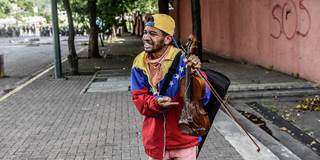Venezuela’s Rebels With a Cause
The collapse of oil prices, combined with years of economic mismanagement by the government, has left young Venezuelans with high expectations but no real prospects. Tragically, the only solution President Nicolás Maduro's government seems to have is stepped-up repression against those whom it betrayed.
